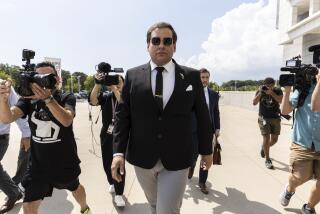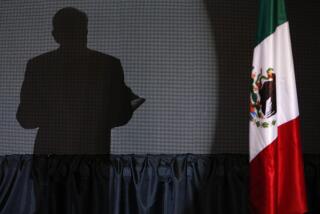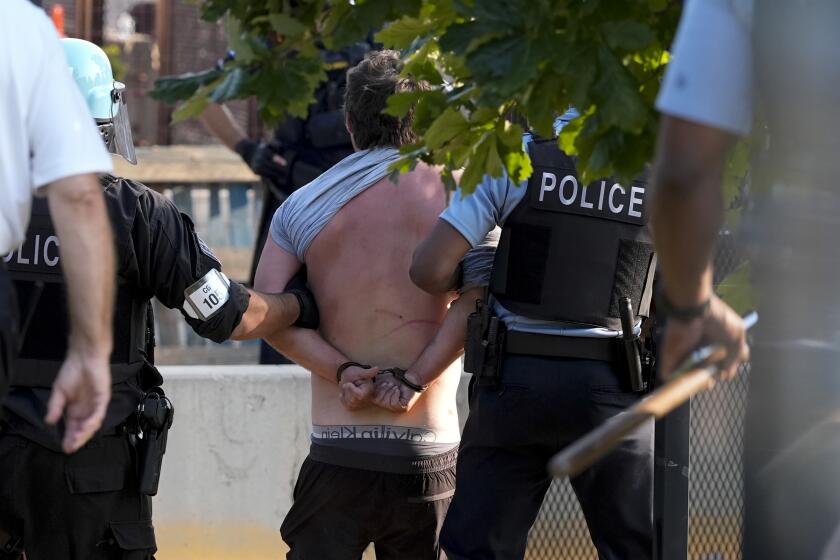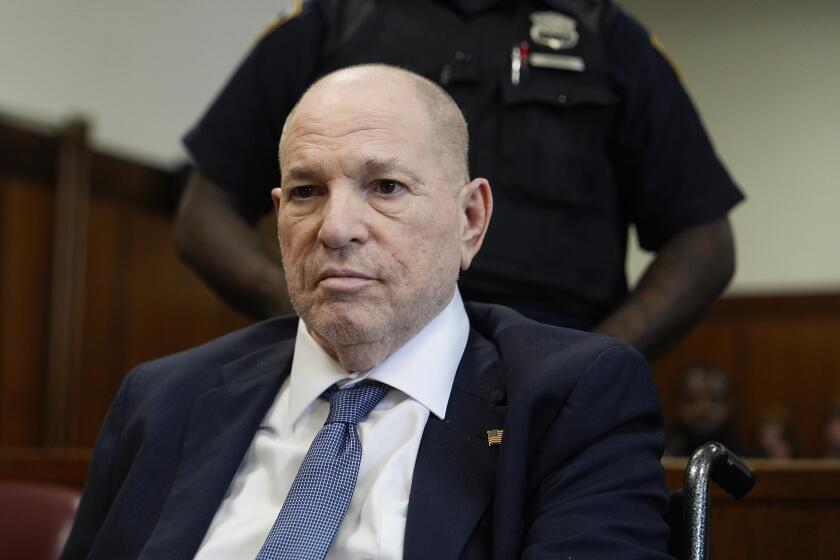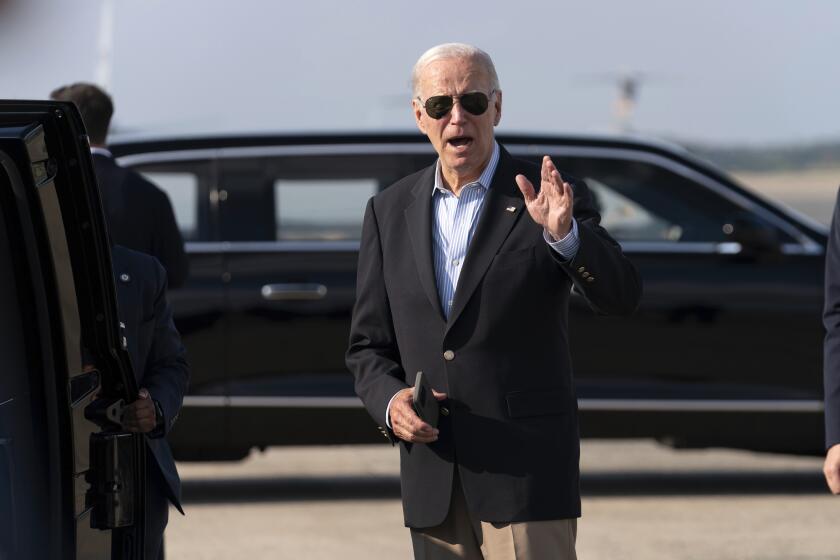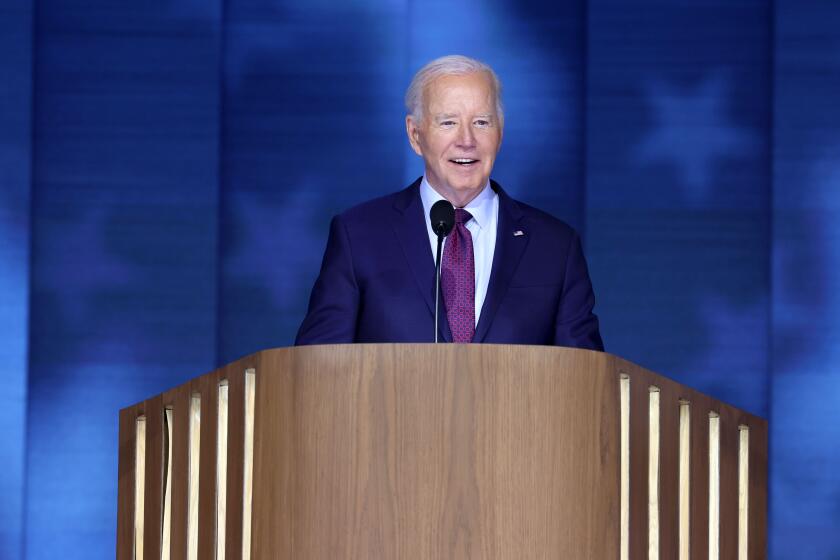Kabila’s Funeral Held Amid Tight Security
Almost four years after his successful bush war toppled a much-hated dictator and propelled him to power, Congolese President Laurent Kabila was laid to rest Tuesday as authorities promised a full inquiry into his assassination.
Thousands of mourners massed outside People’s Palace, where Kabila had been lying in state in recent days, while a succession of foreign delegations bearing floral wreaths arrived to pay last respects.
The white coffin, draped in the royal blue and yellow-starred Congolese flag, was open to reveal Kabila’s face. A portrait of the slain president in a cheerful pose stood propped up against the casket.
Security was tight throughout Kinshasa. Heavily armed troops from Kabila’s military ally Zimbabwe were strategically placed in the vicinity of the palace, and nearby roads were blocked by armored personnel carriers. Diplomatic sources said Angola, another Kabila ally, had dispatched up to 1,000 additional troops to strengthen its presence in the capital.
A week ago, the 61-year-old Kabila was shot by one of his own bodyguards, according to government reports and the alleged sole witness. Soldiers gunned down the assassin before he could explain his motive, but authorities here said the killer acted alone.
The president’s son Joseph was quickly named to succeed him. Officials said he will be inaugurated today.
The younger Kabila, 31, inherits a country that faces an uncertain future. The world’s youngest head of state lacks the political power base needed to help guarantee his success. The country’s economy is a shambles. A civil war, involving at least six other nations, has stifled commerce and production and split the country in half. The security of the new regime will depend on the support of foreign allies.
Joseph Kabila, sitting in a red velvet chair, remained solemn throughout his father’s funeral service, silently watching as dozens of dignitaries bowed before the casket. He exchanged only brief words with the visitors, who included the presidents of Angola, Zimbabwe, Namibia, Zambia, Malawi and Sudan. The foreign minister of Congo’s former colonial ruler, Belgium, was also present.
While Kabila kept silent, other members of his father’s inner circle remembered him as a hero of Congolese history, the man who toppled longtime dictator Mobutu Sese Seko in 1997.
“It is true that the disappearance of Laurent Kabila is a painful event,” Interior Minister Gaetan Kakudji said. “But if we think about it, we will understand that he accomplished his mission in snatching back the power confiscated for many decades and returning it to the people.”
A few speakers seized the opportunity to call for an end to Congo’s civil war, which has dragged on for more than two years, killed thousands of people and displaced many more.
“Let us stop this war,” said Kinshasa’s Roman Catholic cardinal, Frederic Etsou Mazambi. “We are all brothers and sisters. . . . Let’s reconcile so that we will save our nation.”
The conflict pits the Congolese government, backed by Angola, Zimbabwe and Namibia, against various rebel factions backed by Rwanda and Uganda.
Diplomatic sources have confirmed that Angola had become increasingly frustrated with Kabila. Angola’s UNITA rebels have been using Congo, which shares 1,000 miles of border with Angola, as a base from which to launch attacks against Angolan forces, and the Congolese government was doing little to prevent them from doing so.
But on Tuesday, Angola’s ambassador to Congo, Joao Baptista Mawete, said Kabila had been “a friend of Angola.”
After the condolences, friends and family filed past the coffin, many of them weeping.
The military band struck up a rousing tune after playing Congo’s national anthem, and the entourage proceeded in a convoy to the colonial-era Palace of the Nation, where Kabila will be interred in a white marble mausoleum.
Huge crowds of people lined the dusty, potholed streets, which were swept clean in advance of the funeral. Others jogged alongside the gun carriage carrying the casket, waving tree branches and chanting “Mzee,” the affectionate and respectful Swahili word for “old man.”
Life was generally grim under Kabila. Poverty and unemployment are common, with a large percentage of the nation’s 50 million people struggling to get by on less than $10 a month. Political parties were banned, and Kabila introduced many undemocratic measures.
Still, many here said they loved the late president because he freed them from decades of corruption and repression.
“We are very sad,” said Sebastien Makoko, 32, a mechanic. “Our president has died. He was a good man. He came to liberate the country. Life changed a bit compared to the last government. You could walk to the market with all your money in your pocket, which you couldn’t do under Mobutu.”
Sorely underpaid and undisciplined, Mobutu’s soldiers and police were notorious for robbing and victimizing civilians.
Even critics of the government said the outpouring of grief for a man many loathed was not unusual. His slaying simply came as a shock.
“Congolese are very sensitive people,” said Joseph Olenghankoy, a dissident politician, who has been hiding in the Belgian Embassy in Kinshasa for the last eight months. “In the history of this country, people have never seen a head of state assassinated.”
But government opponents, such as Olenghankoy, also believe that Kabila’s fate had long been sealed.
“The person who killed Kabila is Kabila himself,” the politician said. “He did not have respect for human life. Even in his inner circle, he was humiliating them. Even within the political class, he was humiliating us. What happened to Kabila was predictable. Even he himself expected it.”
More to Read
Sign up for Essential California
The most important California stories and recommendations in your inbox every morning.
You may occasionally receive promotional content from the Los Angeles Times.

